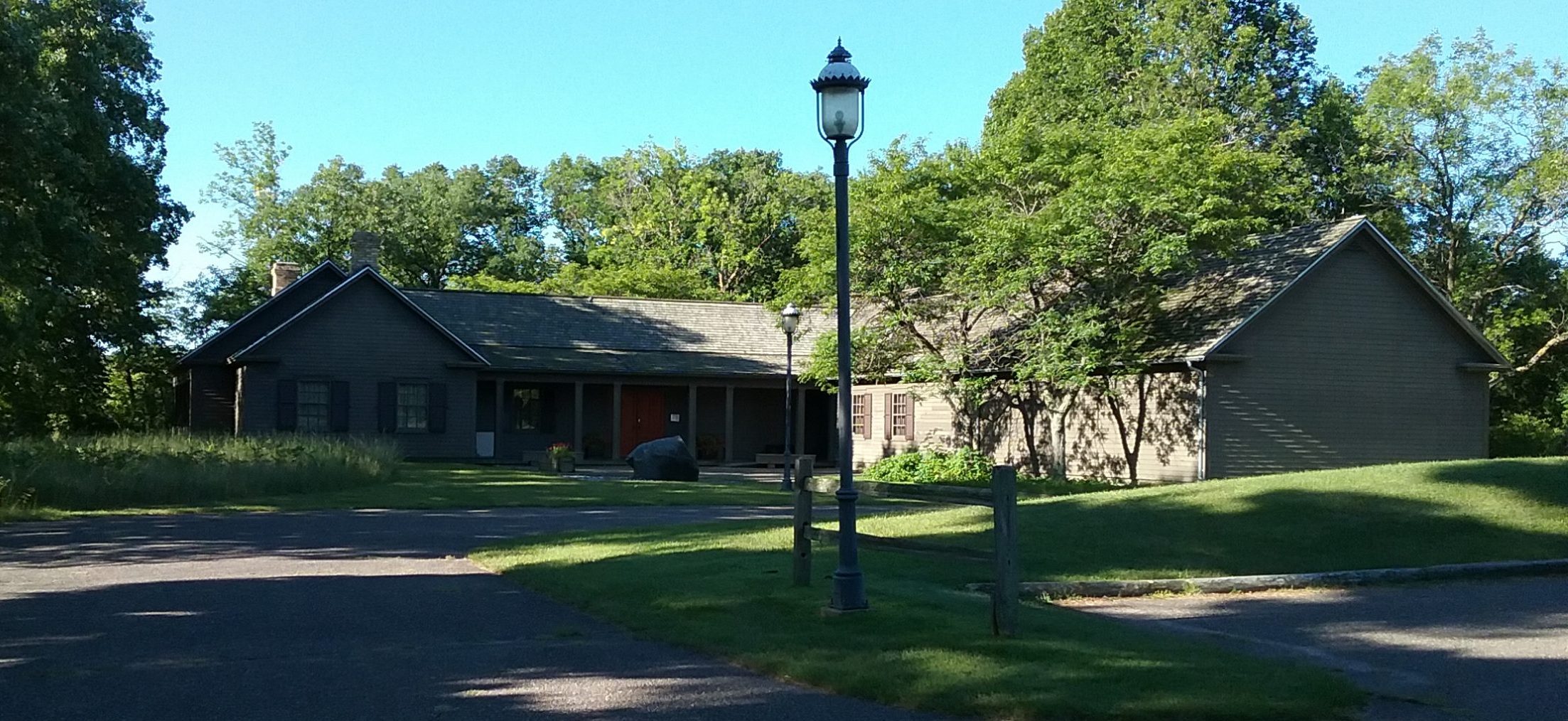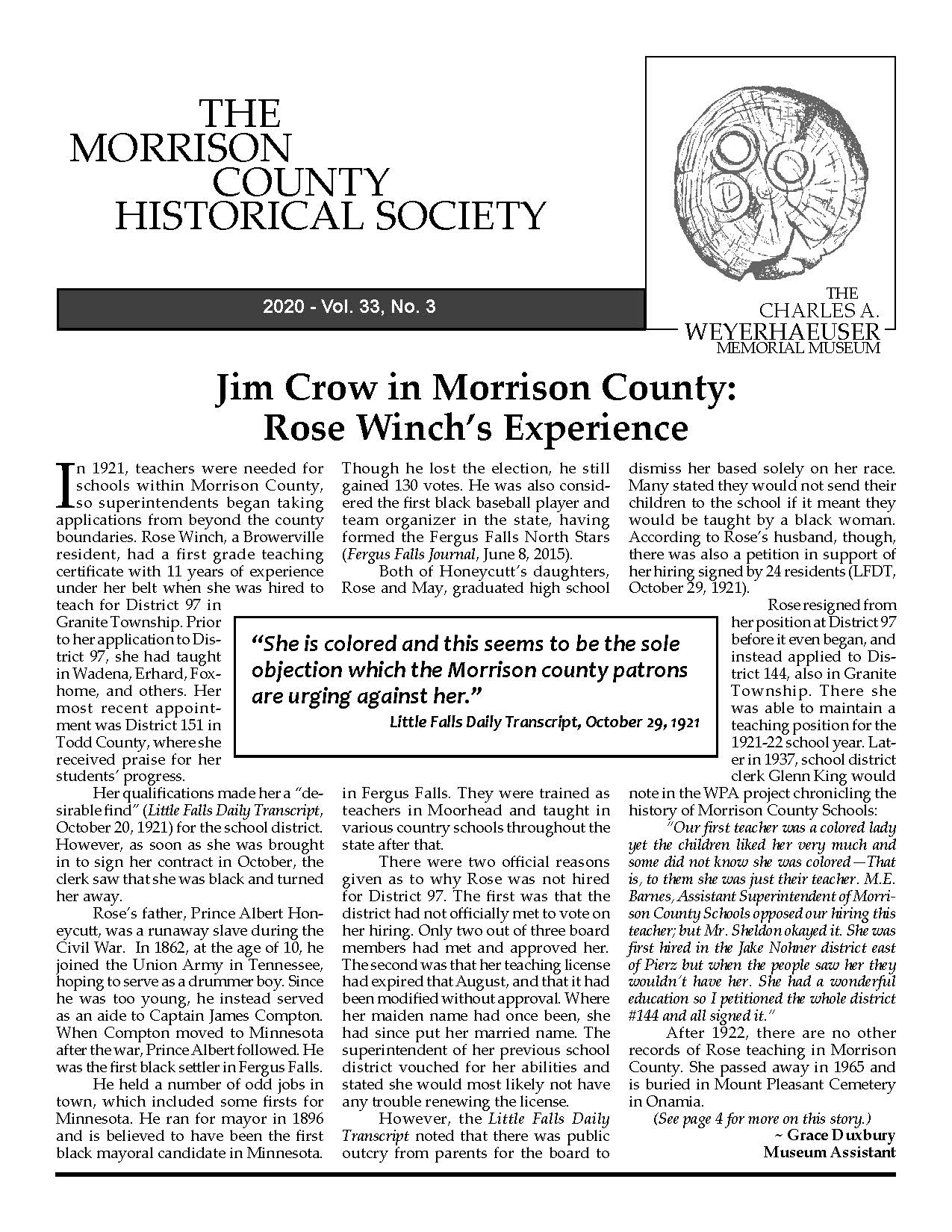In 1921, teachers were needed for schools within Morrison County, so superintendents began taking applications from beyond the county boundaries. Rose Winch, a Browerville resident, had a first grade teaching certificate with 11 years of experience under her belt when she was hired to teach for District 97 in Granite Township. Prior to her application to District 97, she had taught in Wadena, Erhard, Foxhome, and others. Her most recent appointment was District 151 in Todd County, where she received praise for her students’ progress.
Her qualifications made her a “desirable find” (Little Falls Daily Transcript, October 20, 1921) for the school district. However, as soon as she was brought in to sign her contract in October, the clerk saw that she was black and turned her away.
Rose’s father, Prince Albert Honeycutt, was a runaway slave during the Civil War. In 1862, at the age of 10, he joined the Union Army in Tennessee, hoping to serve as a drummer boy. Since he was too young, he instead served as an aide to Captain James Compton. When Compton moved to Minnesota after the war, Prince Albert followed. He was the first black settler in Fergus Falls.
He held a number of odd jobs in town, which included some firsts for Minnesota. He ran for mayor in 1896 and is believed to have been the first black mayoral candidate in Minnesota. Though he lost the election, he still gained 130 votes. He was also considered the first black baseball player and team organizer in the state, having formed the Fergus Falls North Stars (Fergus Falls Journal, June 8, 2015).
Both of Honeycutt’s daughters, Rose and May, graduated high school in Fergus Falls. They were trained as teachers in Moorhead and taught in various country schools throughout the state after that.
There were two official reasons given as to why Rose was not hired for District 97. The first was that the district had not officially met to vote on her hiring. Only two out of three board members had met and approved her. The second was that her teaching license had expired that August, and that it had been modified without approval. Where her maiden name had once been, she had since put her married name. The superintendent of her previous school district vouched for her abilities and stated she would most likely not have any trouble renewing the license.
However, the Little Falls Daily Transcript noted that there was public outcry from parents for the board to dismiss her based solely on her race. Many stated they would not send their children to the school if it meant they would be taught by a black woman. According to Rose’s husband, though, there was also a petition in support of her hiring signed by 24 residents (LFDT, October 29, 1921).
Rose resigned from her position at District 97 before it even began, and instead applied to District 144, also in Granite Township. There she was able to maintain a teaching position for the 1921-22 school year. Later in 1937, school district clerk Glenn King would note in the WPA project chronicling the history of Morrison County Schools:
“Our first teacher was a colored lady yet the children liked her very much and some did not know she was colored—That is, to them she was just their teacher. M.E. Barnes, Assistant Superintendent of Morrison County Schools opposed our hiring this teacher; but Mr. Sheldon okayed it. She was first hired in the Jake Nohner district east of Pierz but when the people saw her they wouldn’t have her. She had a wonderful education so I petitioned the whole district #144 and all signed it.”
After 1922, there are no other records of Rose teaching in Morrison County. She passed away in 1965 and is buried in Mount Pleasant Cemetery in Onamia.
Grace Duxbury
Museum Assistant
This article was first published in the Morrison County Historical Society newsletter, Vol. 33, No. 3, 2020.


